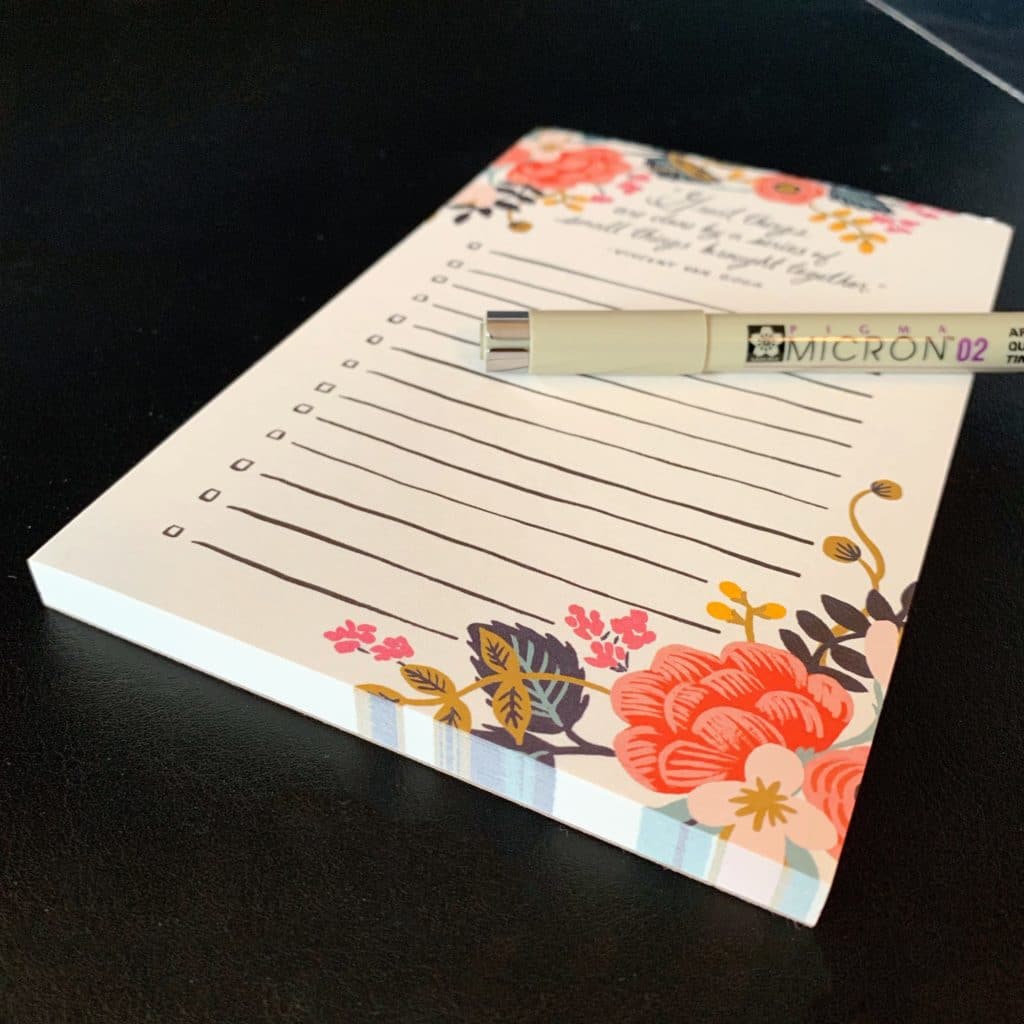The Blog Library
How To Be Assertive (Without Feeling Bad)
 Ever heard from a tired parent, “Trying to clean a house with toddlers in it is like brushing your teeth while eating Oreos”?
Ever heard from a tired parent, “Trying to clean a house with toddlers in it is like brushing your teeth while eating Oreos”?
Haha. (Bless those little curious little havoc-wreakers.)
Last time we talked about two habits that help maintain self-esteem (which itself was a follow-up to our chat about what self-esteem is and what it most definitely is not).
This week, we’re going to acknowledge that even while you’re working on self-esteem, some things, much like rogue toddlers, can continue to mess with your emotional living room.
That is, it might not be enough to simply “tidy up” your self-esteem, you might need to contain and redirect a few sources that actively re-create ongoing difficulty.
One important piece of handling these ongoing issues is your ability to be assertive.
That word, assertive, means something quite specific in the psychology world.
Christopher Mruk explains that assertiveness means “understanding that one has a basic worth as a human being and that certain rights accompany that fact.” Protecting that sense of worth enhances your self-esteem.
Protecting that sense of worth means treating others well (because they also have inherent worth), without abandoning your own worth when others try to impose their agendas upon you.
Mruk continues: “Such assertiveness helps us avoid self-esteem-damaging situations, to say “no” to negative treatment from others, or to leave poor relationships more quickly than is otherwise likely.”
So let’s turn our attention to cultivating one aspect of assertiveness, which is saying “no” to damaging treatment from others. This is what we’ll call:
Self-Esteem Habit #3: The Assertive “No”

Before we get too far down this road, I need to back the truck up (beep, beep, beep) and dump out a couple of warnings:
Warning #1: Oftentimes when people pick up an assertiveness technique, their tendency is to overdo it at first.
Assertiveness (confidence) and aggression (using forceful methods, willingness to fight) are not the same.
That’s important to remember, because if you have allowed yourself to be taken advantage of for awhile, resentment can build up. Assertiveness can turn into aggression if that resentment starts coming out forcefully in the process of saying no.
Assertiveness assumes that you’re neither trying to be submissive (giving in to someone else without cause) nor dominant (trying to force ideas, goals, or punishment upon them).
The balance you seek is making sure no one treads upon your rights and boundaries without treading upon theirs, either.
Warning #2: We can’t cover all assertiveness skills in a single post. If setting boundaries, saying no, people-pleasing and the like present persistent problems for you, you might consider finding a professional who can help you work through a full program.
Whew.
Okay, let’s look at how to say some assertive “no’s.” And we’ll start with:
A) Saying “no” to agendas that intrude on your life and self-esteem.
Mruk said something interesting in that quote above. About how assertiveness means “leaving poor relationships.”
And of course the obvious point is to leave human relationships where you aren’t treated well.
But there’s a less-obvious point in there, too.
What about your relationship with things that are actually lifeless ‘partners’?
What about your relationship with technology?
What about your relationship with Facebook?
What about your relationship with that magazine subscription?
What about your relationship with your local mall?
What about your relationship with that email list you’re on?
Whenever we go out and engage with the world, we let others’ agendas in.
And geez, that’s not always a bad thing. If you walk into Cold Stone, their general agenda is definitely to get you (and everyone else) to buy ice cream. And who is going to complain about that? You don’t want Cold Stone to scuff its toes, look at its feet, and say “Hey, you could come have some ice cream if you wanted.”
You want Cold Stone to be confident, to make that ice cream look SPRINKLY-SPARKLY and totally worth $6.
But being assertive means that you acknowledge that just because some person or entity has an agenda for you doesn’t mean you have to go along with it. It means you can maintain that mental boundary between you and their goals for you, and smile and say “no, thanks.”
You are free at any moment to mentally inventory your interactions and curate the agendas that influence your life.

- To unfollow that page that always has snarky comments that darken your heart.
- To hit “see less from” a page or person or group whose updates are laden with things that exhaust you.
- To create a new habit for using Pinbookflixtubestagram that doesn’t leave you spending hours feeling bored, empty, or only trivially entertained. (Maybe you log in every MWF morning when your kid goes down for a nap, and that’s it.)
- To unsubscribe from magazines or emails that make you feel badly about your current situation without inspiring change or action.
- To stop visiting a mentor source that used to resonate with you, but doesn’t anymore.
The interesting thing is, many of these things that intrude onto your sense of self-worth are not intended to do so.
People generally don’t write statuses, emails, magazines, etc, with the express purpose of making you feel bad. They are just out there, being a part of the world. And you are free to take a look and then say, “No thanks” and look elsewhere.
Not everything earns the space it takes up in your mental life. But mere habit or inertia can ensure that some things stay in, long after they’ve stopped feeding you or allowing you to contribute back.
Notice when something habitually makes you feel bad, dark, heavy, sad, inadequate, alienated. Say “no thanks.”
Unfollow, unsubscribe, and log out. You might feel like you’re missing out on something – and you are. You’re missing out on feeling poorly. Thumbs up.
Clearing out virtual influences goes a surprisingly long way to allowing us to feel better.
And now we come to the tricky part:
B) Offering assertive “no’s” to people and interactions that trespass upon our boundaries.
There are more potential scenarios than there are people on this planet, but I find two particular questions to be helpful in navigating most situations:
Is this reasonable? And: Am I helping them or enabling them?
For example:
An unknown potential client rushes in and says they want to hire you, but they need you to do X, Y, and Z that you don’t normally do, and they need it fast.
(This is a tricky scenario self-esteem-wise, because especially when we’re feeling like money is scarce, we jump at the chance to have a job and our feelings about our business validated. And sometimes this results in us twisting ourselves into pretzels for them and not feeling good or earning much money in the end, anyway.)
You may find it helpful to ask yourself the two questions:
Is it reasonable? Meaning: Is it going to impede your business goals? Is it something that you enjoy doing, even if it’s not your regular thing? Does it derail your focus from work you do want to be doing? Do you have to push back work for others in order to accommodate them?
Are you helping or enabling? Helping means truly giving someone a hand up out of a tough situation – doing something you’d hope someone else would do for you in the same situation. Enabling means aiding behavior that should not occur in the first place.
So in this case, are you helping or enabling might mean: Are they truly in dire circumstances? If you grant their request, are you enabling habits of living that will just cause them to rush into another crisis and possibly mistreat another business owner someday in the same manner?
If it’s not reasonable, and/or it’s enabling poor behavior, it’s probably time to say “no.”
These two questions also help you avoid feeling bad for saying “no.” It’s not mean or uncooperative to opt out of doing something unreasonable. And in a way, you might even be helping them in the long run by choosing to not enable a pattern of poor behavior.
The easiest way to say no:

Thank them for thinking of you, politely decline, and wish them well.
- Thank you for your email. Unfortunately, my calendar is full for your requested dates. I wish you well as you find someone who is available!
- Thanks for your kind words about my portfolio. I am not able to take on additional work at this time. I wish you all the best with this project.
If you decide to take on a project with someone you feel is going to be a “pusher,” establish boundaries early. That way if they start demanding more later, you can easily refer them to the initial expectations you established:
So that we’re both on the same page about our agreement: I can deliver X to you by X date, and that will total $X. If you require additional service beyond what you described in your note, it’ll be billed at X per hour and completed within X days.
These two questions – is it reasonable? is it helping or enabling? – can guide you in all sorts of situations.
A pushy friend who wants you to “come with your camera” to a party he is throwing. (Is it reasonable? Is it truly helping a good cause, or enabling bad behavior?)
The pattern for answering no, if warranted, is the same. Thank, decline, wish them well. That alone is enough.
If you want, you could tell them what they could change about their request to get you to say yes. For example:
“I’m so flattered you’d think of me, Jack, and I appreciate that you like my work. When I’m at home or with friends, like most people, I prefer to stay out of work mode. If you’d like to reserve space on my professional calendar, I’d be happy to send you my rates and give the party true professional coverage, which includes many hours of after-party work. Otherwise, when I put on my party shoes, my work shoes stay at home. I’m looking forward to celebrating X with you!”
Here’s another example:
A relative wants to visit at a time that is inconvenient. Is it reasonable (do you have to massively rearrange your life? Does it require you to spend precious time in a way that makes you feel imposed upon rather than excited to serve them)? Does it help them (they’re in a jam that you’re happy to help them out of) or enable them (encourage repeated behavior of expecting others to cater to them)?
By now, you know the drill:
I’m thrilled you’re coming into town, and I’m happy you thought of me! Unfortunately, I have other commitments that prevent me from offering to host you while you’re here. However, I look forward to taking you to lunch at my favorite secret spot. I can meet you there on Friday at noon. See you then!
Being assertive allows you to preserve your own rights as a human – to control your space and time, to have a real choice when something is asked of you.
But rather than being defensive or aggressive (“I can’t believe you’re asking this of me!”), you can simply offer a “No, thanks.”
To jump on this now, you might spend a few minutes quickly culling your inbox, feeds, or other parts of the daily digital barrage you encounter. Or scrawl the two questions (is it reasonable? is it helping or enabling?) on a post-it note to have on hand next time an email comes in with a request that you might find it tough to handle.
Let me know how it goes in the comments!



How timely! I have spent the day unsubscribing to every nonessential newsletter that came into my inbox and leaving every private Facebook group but my 2 uplifting favorites…. I love your posts! ??
I feel like you wrote this for me. Just wanted to say thank you. <3
This is great. Thank you for writing it!
It is so difficult for people-pleasers to be assertive, as I can attest. I had to learn these skills years ago because I got tired of being a doormat. I still do feel bad for saying “no” sometimes, though, especially when it comes to charity or church. But there are only so many hours in the day and I’m not able to give to others if I don’t have some downtime for myself. When I say “no” in these situations, it is often because I am protecting some much-needed “me” time. That’s what I keep reminding myself. Thanks, Jenika! Helpful post, as always.
I really appreciate your post because I not only struggle with assertiveness but living up to my word. Somewhere down the line I went from doing what I said I would do to always being a no show. Therefore, I’m trying to rediscover myself and understanding what is driving this behavior. As of lately, I’ve been practicing stress and anxiety management through the book “Declutter your Mind”. So far, meditation and deep breathing really helps but other times I have other issues that ail my motives. Some of which are knowing when to say yes or no, respecting one’s self, and knowing between what is right and wrong. Some of these may seem like simple tasks but they are tricky subjects believe it or not.
I originally read this post because I ghosted someone today and this isn’t the first time. A lady asked me to come clean her home for the price of $15 an hour. Initially I agreed to it not because I was interested in doing it but the money looked good. However, when she showed me around her home little red flags were popping up and my gut was screaming NOOO! Instead of saying no, I thought I should give it a try and said yes. As days went by and the deadline drew closure I began to get cold feet. When the day finally came when I would have to clean her house I panicked and I told her sorry, but no with some silly excuse. Her response made me feel so guilty, because she said you have wasted my time and that was the last thing I wanted to do. For this reason, I decided that I need to find ways to say no initially before something like this happens so the other party doesn’t get led on or hurt.
This was the MOST well thought out and explained post!! I am incredibly grateful for your deliberate information!! Thank you especially for the examples (I always need these). I wish you well and I will be sharing this post with others.